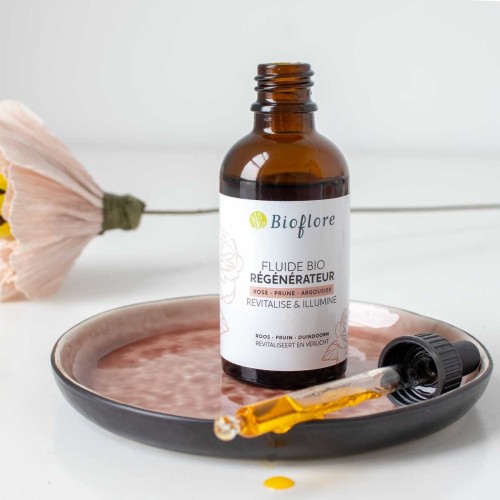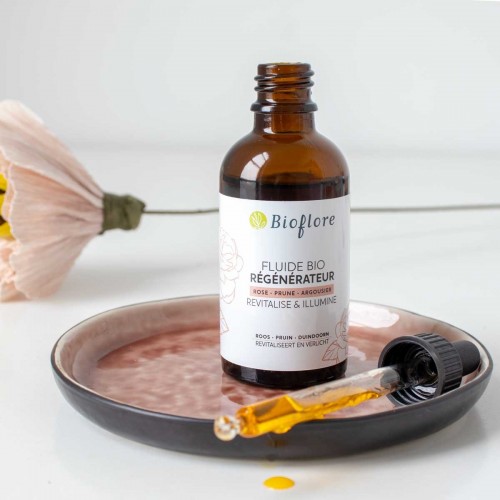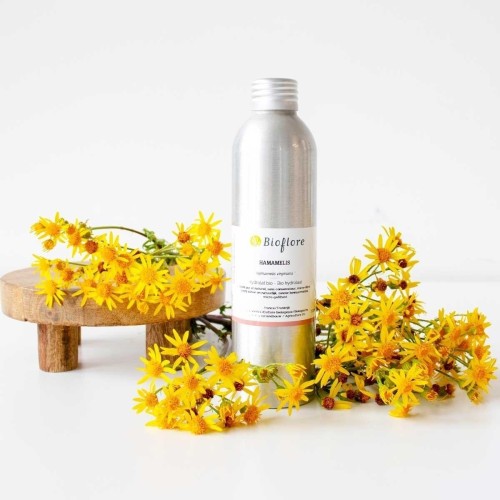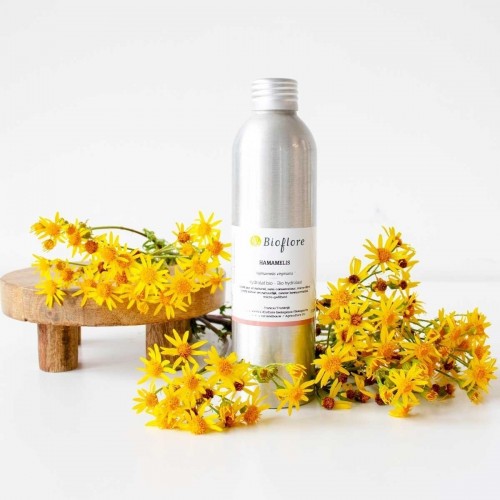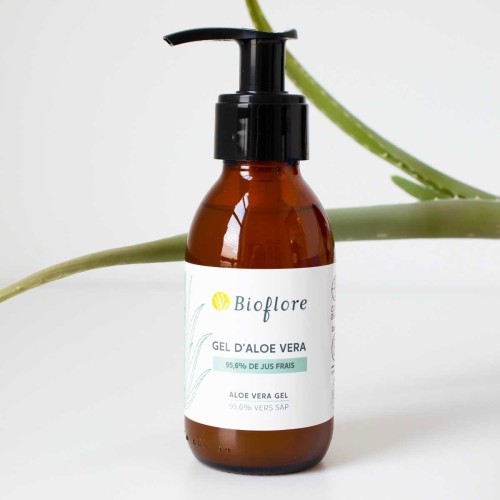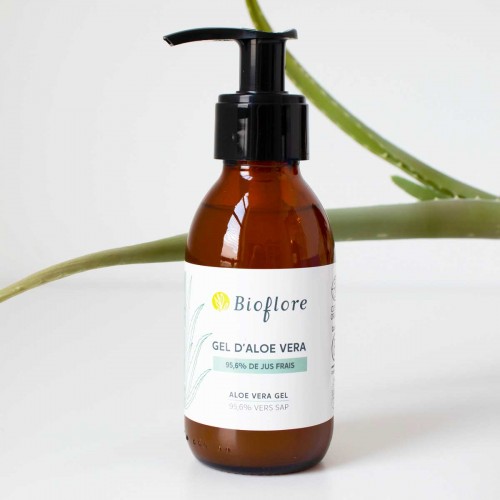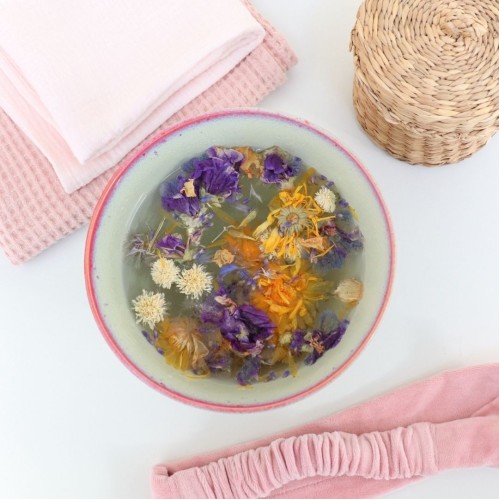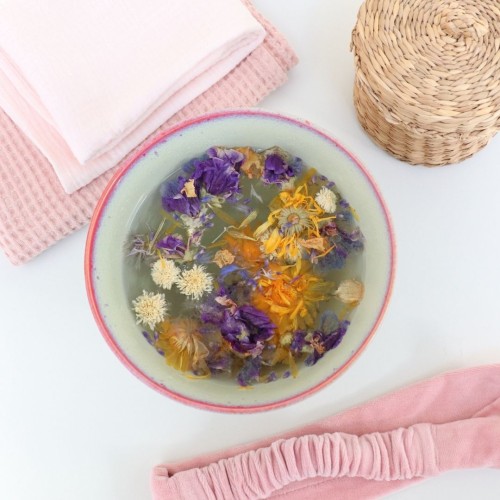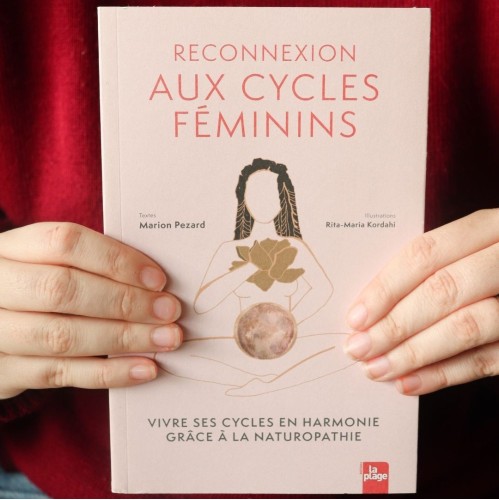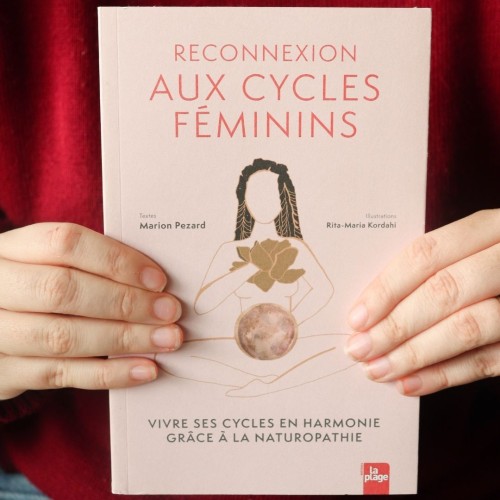The post-partum period is the first few weeks, months and even years after the birth of a child, during which the woman's body gradually returns to its original function.
Just a few years ago we weren't even talking about the post-partum period, which is such a pivotal time for women, couples and families.
The famous French idwife and columnist Anna Roy has published a book entitled ‘The post-partum period lasts 3 years ’* and it can take up to 5 years for a woman's brain to return to its original structure (yes, our brains change during pregnancy, it's absolutely crazy!).
So today I'm going to suggest a few things you can do for your immediate post-partum period, the famous golden month or 4th trimester, and also and above all remind you that your body has just accomplished the greatest effort in nature, that of making a human being and giving him life, so be gentle with yourself and give you time to rediscover who you are.
An article by Marion Pezard, naturopath and producer of the Healthyliving Podcast
Preparing for a smooth, serene post-partum!
Now that we are aware of the challenges that this period represents, let's seize the opportunity to anticipate it as best we can to make it as smooth as possible and allow us to concentrate our priorities on our little baby and this new family balance.
Food
To begin with, the most important thing is to eat well. During your last trimester of pregnancy, think about cooking some good comfort food that you can freeze or put in jars to keep your mental load to a minimum when the time comes. Lentil dahl, vegetable curry, soups, collagen-rich broths, energy balls - you'll need something hot, simmered and comforting, without skimping on animal or vegetable proteins and healthy fats. You can also opt for vegetable juices, if you have an extractor, to fill up on vitamins, or you can order a programme to be delivered direct to your home to minimise your mental workload.
Don't hesitate to ask friends and family to cook for you, either beforehand or when they come to visit. Of course, there's no question of exhausting yourself preparing a gourmet meal or a gargantuan tea party every time someone visits you to meet your newborn baby - it's up to you to be pampered, not the other way round.
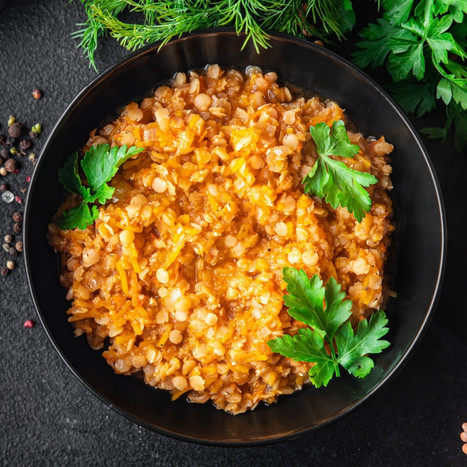
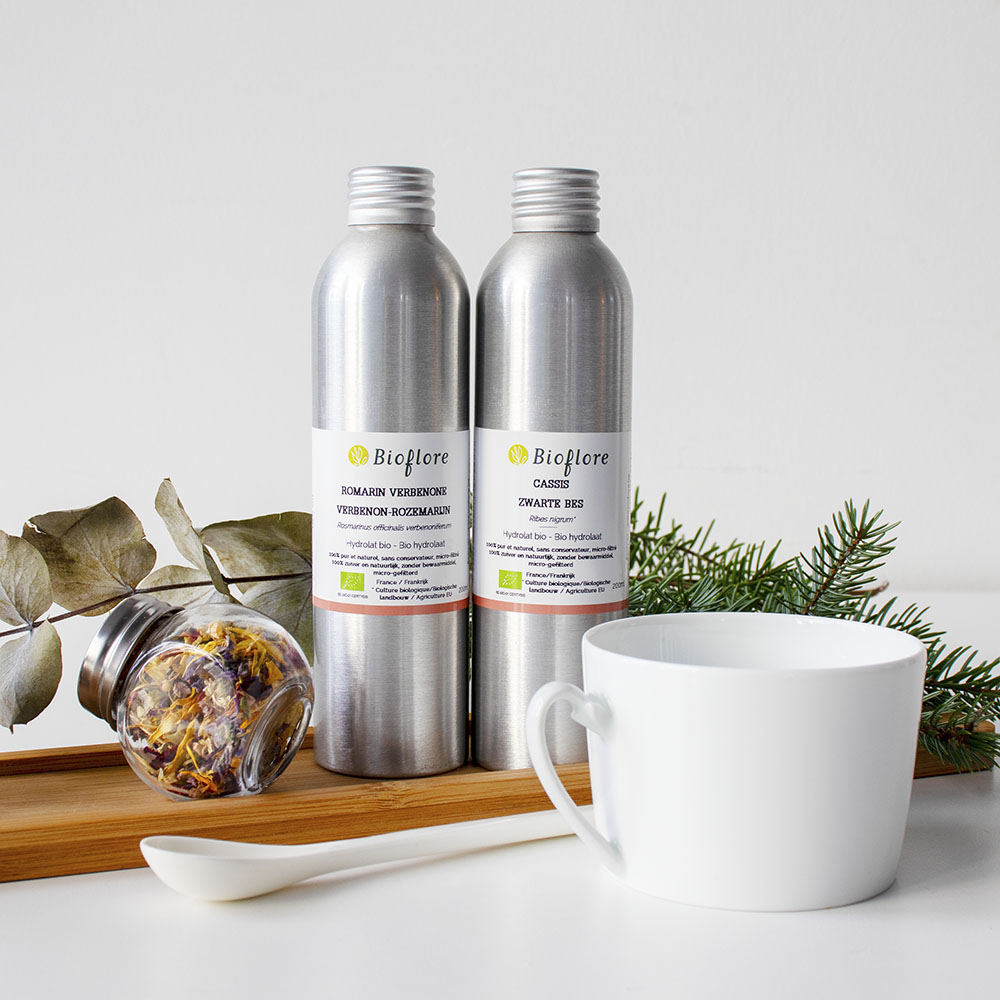
Hydration
You'll also need to be properly hydrated, as your body will be sweating a lot in the post-partum period to eliminate pregnancy-related fluids. If you're breastfeeding, your need for water will be even greater and you'll be thirsty very often. This is the time to invest in a large water bottle and a thermos that your partner can prepare for you to sip your special post-partum herbal tea throughout the day. Below is my recipe.
Gentle movements
During the first few weeks, in the spirit of the Golden Month**, we recommend that you lie down as much as possible to recuperate and allow the perineum to be preserved. Then, gradually, when you feel like it and have the energy, you can resume gentle daily movement in the form of stretching directly in bed (studio témé, for example, offers a very suitable online programme) or walking.
Supplements
Supplementation is a very personal and individual thing, so I'm not going to go into too much detail, but I think it's a good idea to take a vitamin and mineral complex adapted to pregnancy or the post-partum period, as well as magnesium, vitamin D and omega-3s (from the end of bleeding only). You can also consume isotonic or hypertonic marine plasma on a daily basis, depending on your needs, to rehydrate, remineralise and re-energise you.
I also suggest you consider using blackcurrant bud during the first few weeks, which will have a stimulating effect on the body, help to eliminate the various fluids and support immunity.
Skin-to-skin & massages
The body is often put to the test after pregnancy, which in terms of energy is the equivalent of running a marathon every day, and childbirth, which is the most energy-intensive act the human body has to deal with. Add to that the sleepless nights, the aching arms from carrying the baby, the possibly uncomfortable positions for rocking or breastfeeding, and your body can quickly become a mass of pain. So, if you can, and at your own pace, consider getting a massage, either at a beauty salon or even at home with your partner. Shoulders, head, feet - any relaxing moment is good for you.
If you can, treat yourself or have someone treat you to the famous rebozo treatment as a birth gift. It tightens the pelvis and symbolises the transition to your new identity as a mother - it's a divine ritual that I hope every woman will experience.
And of course, as much as possible, give yourself and your child skin-to-skin contact, which will be good for both of you, particularly in terms of the hormones, nerves and immune system.
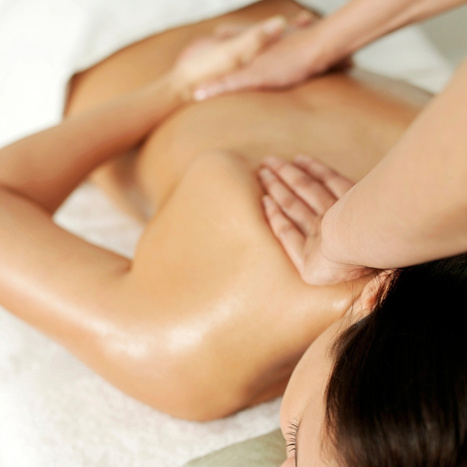
From a loving couple to a parenting couple
Another piece of advice that I think is invaluable is to begin the transition from loving couple to parenting couple with your partner. As soon as you're pregnant, discuss your desires and aspirations as a family, what you do or don't want to pass on to this little one, how you see your post-partum period, what you might need, how you'll divide up tasks as a couple - in short, communicate to avoid any shocks when the sleep deprivation and hormonal drop sets in.
Complementary practices
Finally, during the first few weeks, you should also consider being monitored by an osteopath or chiropractor, if possible one specialising in perinatal care, and possibly an acupuncturist or shiatsu practitioner, to help your energy circulate as it should.
Plants for the post-partum period
Of course, plants are always valuable allies, especially during this time of life. So here are a few of my favourite recipes for the post-partum period.
My recipe for a soothing and healing local skincare product
During this post-partum period, you may have scars and abrasions that you need to take care of. I therefore recommend this treatment which, as well as being disinfectant because it contains the alcohol in the mother tincture, will also be soothing and healing.
In a 100ml pump or dropper bottle, mix the following ingredients:
- 10mL calendula mother tincture
- 10mL organic aloe vera gel
- 40mL witch hazel hydrosol
- 40mL water, ideally filtered
Always test this mixture in the pit of your elbow to make sure you tolerate it well, before applying it more widely to the concerned areas.
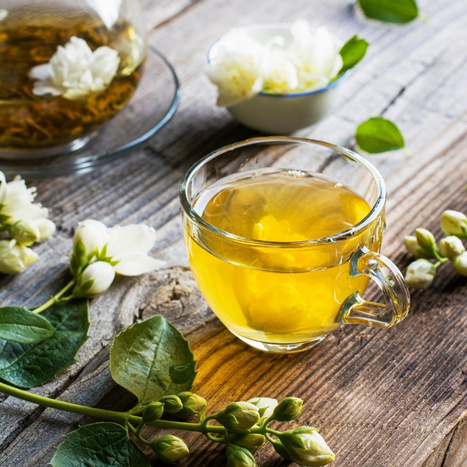
My post-partum infusion recipe
This is my favourite blend for remineralising and warming you, toning your mucous membranes and sustaining your energy:
For 1 cup
- 1 tbsp nettle leaves
- 1 tbsp raspberry leaves
- 1 tsp mallow flowers
- 1 tsp liquorice
- 1 pinch cinnamon
- 1 tsp honey
My flower bath recipe
After 3 weeks (check with your midwife or gynaecologist for recommendations), you can start bathing again. Why not make this moment a delicious ritual, just for you or to share with your baby to celebrate the two of you.
To do this, I suggest you make a flower bath by slipping the following ingredients into a small tea bag and letting it infuse in the bath water.
- Rosebuds to soothe and open the heart;
- Lime blossom to soothe and symbolically welcome this new facet of yourself;
- Chamomile blossom to calm mental ruminations and any inflammatory pain;
- Oat flakes to soften the skin and give the bath a very gentle milky appearance.
Taking care of your skin
Finally, remember to adjust your facial routine to the needs of your post-partum skin, as the sudden drop in hormones may mean that you need to moisturise more, for example by massaging your face with plant oils such as the Regenerating Oil, which contains rose, plum and sea buckthorn oils to give you a healthy glow, or by regulating your skin with clay masks and non-comedogenic skincare products such as a light moisturising cream and jojoba oil.
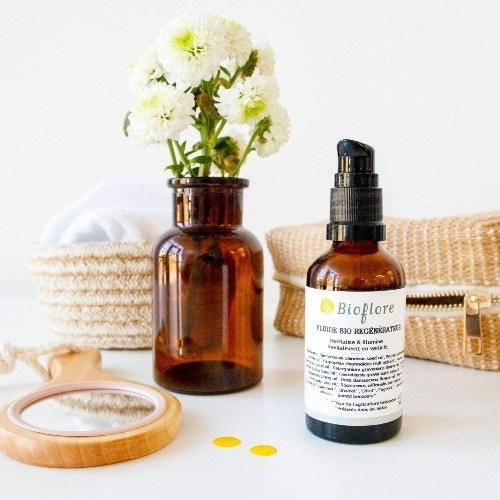
I hope from the bottom of my heart that these tips will help you through this very special time in your life, and I urge you more than ever to celebrate yourself and get help if you need it. Remember, you are queens!
*Anna Roy, Le post-partum dure trois ans, éditions Larousse
**Céline Chadelat et Marie Mahé-Poulin, Le mois d’Or, éditions Poche Marabout



